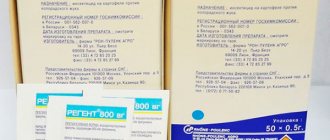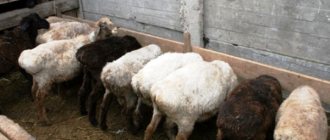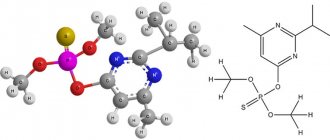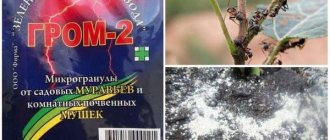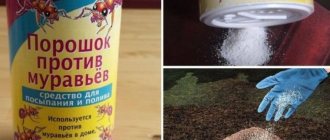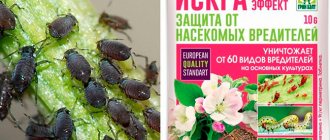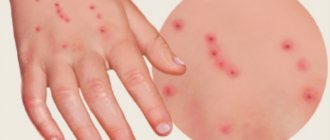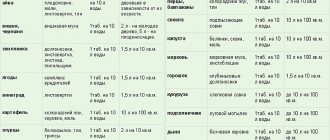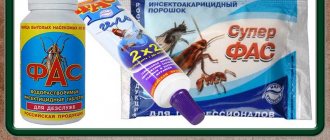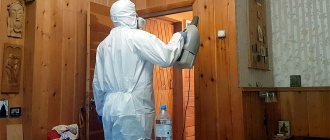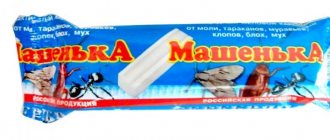In general, ants are considered beneficial insects, but sometimes in garden areas the harm they cause exceeds the benefit. They like to make their homes in the middle of beds and under bushes, damaging them, eating berries, vegetables, seeds and seedlings, destroying the inflorescences of ornamental flowers and spreading weed seeds throughout the area, adding to the anxiety of gardeners. The products of their vital activity are acids, and in places where there are large concentrations of ants, the level of soil acidity gradually increases, which negatively affects the growth of garden crops.
If ants have become a problem in your area, you should get rid of such neighbors, and a very effective drug will help you deal with them - Green Belt Ant for garden ants, 10 g.
Which Ant?
The damage caused by garden ants is great, combating them is difficult, and there are many drugs available for sale against ants. Among them are Anteater and Anti-Ant - the names are easy to confuse. In agricultural stores and, especially, in the markets of neighboring countries, you can come across “ants” from mysterious “Euro” manufacturers with the manufacturer’s details pointing into the free space and indicating active ingredients that are not in the international chemical nomenclature. This article discusses the Russian pesticide Muraviin G as quite effective, inexpensive (see below) and one of the least dangerous for people, bees and vertebrates, excluding biological methods and folk remedies for eliminating ants.
Attractive targeted insecticide Ant
Note: G in the name refers to ready-to-use granules that are not intended for dissolution in water, preparation of working fluid in any other way, or any other manipulations before use.
Advantages of the drug
Compared to other drugs of similar action, Antiant has many advantages.
The main ones are:
- no unpleasant odor;
- ease of use;
- relative safety for human and animal health;
- high efficiency;
- long-term effect on pests.
The product quickly paralyzes insects, depriving them of the ability to feed and move. In addition, Anti-Ant is effective not only against ants, but also helps rid the house of bedbugs and cockroaches.
The Bushido drug is an effective extermination of the Colorado potato beetle.
Find out how to get rid of many garden pests using the drug Barguzin.
Composition and action
The targeted insecticide Muraviin G is a monopreparation. It contains one active substance - diazinon from the chemical class FOS (organophosphorus compounds) at a concentration of 5% (50 g/1 kg of dry granules) and a binder edible for ants. The entire drug is used immediately upon opening the package and cannot be stored unopened, therefore the purchase batch must be formed in accordance with the regulations for use, see below.
Chemical formula of diazinon
Diazinon, in essence, is not quite an FOS: this substance is an anhydride of thiophosphoric acid combined with organic radicals, one of which (cyclic) includes amino groups (formula in the figure); diazinon can also be considered as an ester of carboxylic acids. But in general, this active ingredient as a pesticide acts like “real” OPCs, which is why it is included in this class.
Note: the prefix “thio-” in chemical nomenclature denotes compounds in which oxygen is partially or completely replaced by 2-valent sulfur; In the periodic table of chemical elements, oxygen and sulfur are closest relatives. Thus, there is thiosulfuric acid H2S(+6)O3S, whose properties are quite similar to sulfuric acid H2S(+6)O4.
According to the mechanism of action, diazinon is a neurotoxin, a nerve poison. FOS neurotoxins phosphorylate a wide range of enzymes - esterases, which in biochemical language is called competitive activation. The main of the esterases, cholinesterase, common to all animal organisms, is a mediator enzyme responsible for the passage of nerve impulses to muscle cells. Under the influence of diazinon, cholinesterase loses its ability to hydrolyze the carrier of the nerve signal, acetylcholine. It accumulates in the synaptic cleft of the postsynaptic membrane of the cell, and it ceases to correctly distinguish between signals from the nervous system. As poisoning progresses, it results in tremors (random convulsions), followed by paralysis and death. In part, this phenomenon resembles the collapse of communication systems under the influence of a large number of sudden calls.
The UN once determined which of the systems of human society are the most vital. It turned out to be communications and power supply. If you suddenly turn off communication centers and energy generating enterprises, in 20 minutes nuclear chaos and general destruction will occur, but without sewerage, humanity will survive for a couple of months; without food production for more than six months. Wildlife is no exception, and the internal communication systems of living organisms are duplicated many times: in the body of warm-blooded animals, 5 mediators are involved; more than 100 of them are known for insects. This implies a general disadvantage of FOS as pesticides - they cause group resistance of the affected objects, because act only on cholinesterase. If the poisoning was not fatal, the body uses reserve mechanisms for transmitting nerve impulses and becomes resistant to the poison.
Among FOS, diazinon stands out, firstly, for its high toxicity. Its toxicological indicators are very strict:
- ADI for humans is 0.005 mg/1 kg body weight.
- MPC in soil is 0.1 mg/kg.
- MPC in water of reservoirs is 0.004 mg/cubic. dm.
- MPC in the air of the working area (trained adults in PPE) 0.2 mg/m3. m.
- MPC in ambient air (non-specialists without PPE) 0.0001 mg/cubic meter. m.
At the same time, the volatility of diazinon is quite high - 1.39 mg/cu.
m at +20 degrees Celsius. Secondly, unlike FOS, in which 5-valent phosphorus is directly “linked” into an organic molecule, diazinon is practically non-specific - no difference in its effect on animal beings of any very distant systematic groups was noted. Both taken together already make pure diazinon a very dangerous substance (compare volatility with the maximum permissible concentration in atmospheric air). Thirdly, also unlike most other OPs, diazinon very easily penetrates the human body through the integument, both during reabsorption of fat and through dry, intact skin. In addition, phytotoxicity has been firmly established for diazinon: once it gets on the roots of plants, it causes their inhibition. Seeds treated with diazinon significantly lose their germination capacity, take a long time to germinate, and their plants grow small, weak, and poorly resistant. Among the positive qualities of diazinon, it should be noted, firstly, its rapid, complete hydrolysis within 20 days under natural conditions. Primary natural metabolites - mineral thiophosphates and organic acids - are non-toxic and also quickly disintegrate into harmless compounds; all natural metabolites of diazinon do not migrate or accumulate in soil and plants (if the required waiting period before harvest is met, see below).
Secondly, diazinon in solution is stable only in a chemically neutral environment. In weak (not to mention strong and moderately strong) acids and alkalis, diazinon very quickly hydrolyzes to non-toxic compounds. This somewhat simplifies the work with the drug and facilitates precautions when using it, see below. However, you should never take liberties with Ant G: a 10 g package of the drug contains approx. 65 DSD of diazinon.
And thirdly, Muraviin G is cheap per treatment. The price of the drug in the Russian Federation at the beginning of 2022 was:
- Per sachet 10 g approx. 20 rub.
- The same, 50 g – approx. 40 rub.
- Per bottle 300 g approx. 250 rub.
Note: as we see, there is a big jump in the cost of 1 g of the drug in small and medium packages. This circumstance should be kept in mind when forming the purchasing batch of Muravyin G, see below.
Are there after effects?
The manufacturer declares that Muraviin G has no mutagenic, embryogenic or teratogenic properties. However, all these types of harmful bioactivity are reliably established as common to OPCs. Since the mechanism of action of DV is the same, where do its after-effects go? Therefore, Muraviin G should be used in private household plots, strictly observing precautions, since they are not expensive, simple and not burdensome, see below.
Why - Ant?
Diazinon is included, in addition to Muravyin, in many pesticides, of which Barguzin, Vallar, Grizzly, Grom, Grom-2, Zemlin, Medvegon, Medvetoks, Anteater, Muhoed, Pochin, Provotox, Terradox are registered in the Russian Federation for use in private household plots. However, the described drug is specific and effective against earthen (soil-dwelling) garden ants. The explanation for this is not only the additives that are “tasty” for them, but also Muravyin’s DV itself, which in its pure form is an oily liquid, similar in color and smell to vegetable oils.
Worker ants feed almost exclusively on carbohydrates (sugars) - they are not able to reproduce, and extreme muscular efforts in stressful situations for the anthill are the lot of soldiers. The energy accumulator characteristic of insects—the fat body—is poorly developed in working ants.
Soldiers and, especially, fertile individuals of the anthill, are in dire need of proteins and fats. Garden ants obtain protein in abundance from seeds and animal prey - insects, small mollusks, etc. But there is a deficiency in fats; the metabolism of harmful “street” shepherd ants is adapted to vegetable oils. Ant G seems to them to be a gift from heaven, and they “joyfully” drag it to feed the vital “organs” of the anthill. With a tragic result for him and a desired result for us.
What are the advantages of Muratsid
The pesticide itself is based on diazinon. This is a contact-intestinal poison that affects the nervous system of ants as soon as it enters the stomach. As a result, all individual ants, including the queen, die within 24 hours. The poison causes terrible spasmodic pain and paralysis of the insect. But at the same time, it is absolutely safe for pets and humans.
Thus, the benefits of the drug are quite extensive.
- It’s a small price to pay to kill off an entire colony of ants (both black and red) in one day.
- Cost savings. One dose is enough to treat up to 20 anthills. In this case, not only ordinary individuals are destroyed, but also the uterus that gives birth to them.
- The period of time during which a colony of ants is poisoned is minimal. Within a day, the entire colony dies out.
- The drug is absolutely safe for the environment. It does not pollute the atmosphere and does not have volatile properties.
- The drug is not a threat to earthworms and beneficial bacteria. But if there are other pests in the garden (for example, mole crickets), then they can also be destroyed.
- The drug has no harmful effects on plants and root crops.
- The effect, after using the pesticide, remains for another 2 - 3 months.
- The drug can be used not only in garden plots. You can also use pesticides in apartments, warehouses and enclosed spaces. And for this, the poison is mixed with bait.
Restrictions on use
The following follows from the above. restrictions on the effectiveness and procedure for handling Ant G:
- The drug is ineffective against mole crickets, fly larvae and other soil pests. Ants exterminate them, and the attractiveness of the drug for them is a signal of high danger for their potential prey, from which you need to stay away, under no circumstances trying it out;
- Ant G is useless against synatropic (house) ants, even those nesting in the ground - they prefer animal proteins and fats, which they receive from our reserves (or waste);
- Despite the convenient formulation, when working with Ant G, you should take every possible precaution and protect all living things from direct contact with the drug.
Should I poison ants?
Indeed, any ants hunt insects for food, incl. malicious. And it’s a human pity to destroy cute, hardworking ants. Maybe because they, like us, are the highest degree of development of social relations of their kind (see at the end)?
Soil ants and types of their harmful activities
In fact, the harm from soil ants living on cultivated lands (top left in the figure) many times exceeds the benefits they bring (see also the other positions in the figure):
- Garden ants graze aphids, carefully protect them from enemies and help these malicious pests spread.
- Ants themselves are not at all averse to eating plant fruits, both tender and with thick skin.
- Constantly experiencing a deficiency of proteins and fats, the ants greedily attack the sown seeds, take them away and destroy them.
- For the same reason, anthills in the ground are reserves of weed seeds that cannot be destroyed either by weeding or herbicides.
Pest ants are especially dangerous on cabbage, see next figure. They gnaw the roots of seedlings, causing them to lie down and die.
Damage to white cabbage by ants
The next food item on cabbage that is tempting for ants is young leaves and the growing point, which is why the plant cannot form a head of cabbage. If in other crops the damage from ants is measured by the percentage of losses, then by attacking cabbage they can destroy its entire crop. Therefore, it is possible and necessary to fight harmful ants in your area.
Security measures
Upon completion of work, you should thoroughly wash your hands with soap, despite the fact that the procedure was carried out using rubber gloves. Ingestion of microcapsules into the respiratory tract is excluded; if the product is accidentally swallowed, signs of intoxication of varying degrees of severity develop, depending on the dose of poison.
The capsules do not harm animals or birds if the instructions are strictly followed - sprinkle the capsules with soil. Plants partially absorb toxins when the capsules lose their shape under the influence of moisture. The effect of toxins in plants is completely neutralized in 20 days.
Precautionary measures
The preparative form of Muravyin G was developed taking into account equal effectiveness, safety and direction. Therefore, the protection zones for this pesticide are established as follows:
- Apiary – 5 km (limited flight of bees for 24 hours).
- Reservoirs, water supply sources - according to their cadastral water protection zone.
- Children's institutions - 150 m (children's access to the work area must be excluded).
- Other objects exposed to the influence of the active substance – 5 m from the working area; access to it by animals must be excluded.
PPE for working with Ant G is simplified, although this drug is a substance of the 3rd class of hazard for humans (see also above): work shoes covering the entire foot and ankles, work clothes with long sleeves and trouser legs, protective gloves and simple, without face seal, safety glasses. For the respiratory organs - a 3-4 layer dry gauze bandage.
An indispensable condition for work safety is that the drug granules should not get on the body and, especially, in the eyes or inside. When working with Ant, it is highly advisable to have with you a sealed container containing a cotton or gauze swab, generously soaked in a 1-2 tbsp solution of baking soda. l. per glass of water, or table vinegar diluted three to five times, or apple cider vinegar. If granules get on the skin, they should be shaken off immediately and the affected area should be wiped with a weakly alkaline (or acidic) solution, which is what a swab is for.
If granules get into your eyes, immediately rinse them open under running water and immediately consult a toxicologist. The same - if ingested or in a body cavity, and if there are signs of acute poisoning: abdominal pain, blurred vision, blurry vision (initial symptoms); then - general weakness, irresistible laziness (neurotic impotence), insomnia, these are symptoms of moderate severity. If it comes to nervous tremors, tics, convulsions, your chances of being cured without consequences are illusory.
Self-help measures for diazinon poisoning are ineffective; there is no specific antidote. Treatment is symptomatic, with atropine or it with PAM. But keep in mind: treatment with nonspecific antidote stimulants rarely occurs without long-term consequences. Perhaps more powerful than the poison itself. The difference is that from alkaloid treatment, if carried out by a qualified doctor, the patient survives and becomes healthy enough to be discharged, but from poison this is not always the case.
Ant G is stored in conditions typical for agrochemicals: in a separate non-residential premises in which food, medicines, children's things and household items cannot be kept. The drug spilled on the floor must be collected and can be used. The spilled soil is also collected, and the soil in that place is neutralized with a weak alkaline or acidic solution. Used packaging is destroyed by burning in a waste incinerator or handed over for disposal to a special receptacle along with containers for other toxic chemicals (prior to delivery, packaging to be disposed of is stored in an agrochemical storage facility).
Note: Children especially need to be protected from contact with the Ant. There are known cases of fatal poisoning of children with diazinon due to careless handling of the drug (see, for example: https://www.zakon.kz/4817424-v-semee-gore-mamasha-ubila-doch.html).
How to eliminate aphids
By getting rid of these insects, you can also eliminate ants. As you know, aphids are pests. In many cases, it is enough to get rid of it, and the ants will disappear too. To do this, take ash and wormwood. They need to be boiled in boiling water. The mixture is infused for a couple of days. After this, plants affected by aphids should be sprayed with the resulting solution. The insect will die, the ants, in turn, will be deprived of their favorite treat and will leave. A very effective way, according to many gardeners, is a mixture of linseed oil (30 g) and soda (5 g). These components are diluted in a liter of water. Another quite effective method, according to experienced owners, is to cover tree trunks with rings of paint, resin and clay.
Application procedure
Ant G is applied in bulk without preparing a working solution. The granules are not embedded in the soil; time before rain 24-36 hours. The temperature range of the drug’s effectiveness is +(15-25) degrees Celsius, it coincides with the temperature range of activity of harmful ants.
Instructions for use of the drug Muraviin G are given in table. below. This pesticide is not directly used for fruits and vegetables and berries due to its increased phytotoxicity for such crops. In this case, you need to find the anthill and destroy it.
Advantages over other means
One of the main advantages of Anteater over other means is its relative safety. It belongs to the second class of chemical hazard and is practically harmless to humans. Also, the product does not harm the soil and does not accumulate in it. All microorganisms living in the soil remain unharmed.
The insecticide poisons insects in a short time. Three days after using the product, results will be visible. The effectiveness of the product is the same both in the form of a solution and in the form of a powder.
One Anteater capsule is enough to destroy 5-10 anthills.
Use the product outdoors and indoors, taking all precautions. The price of the drug is mainly lower than that of other firms and companies
The price of one ampoule is approximately 10-20 rubles
The price of the drug is mainly lower than that of other firms and companies. The price of one ampoule is approximately 10-20 rubles.
In order not to waste energy and money in the fight against ants, you should regularly carry out preventive measures in your apartment, house and on your property. Dishes must be washed immediately after eating, and crumbs and leftover food must be removed from the table. The floor is washed with a damp cloth or vacuumed. Keep kitchen cabinets clean. Food waste is collected in a dustbin and thrown away regularly. All cracks are insulated, complicating access to the room.
Summary
Ants on a site are not a random invasion of pests, not a colony of them, or an otherwise organized community of insects. The life form of ants as a species is a special biological formation - an anthill. Biologists call such forms of existence of animals (except for ants - bees, social wasps; possibly coral polyps) superorganisms. In superorganisms, the role of individual individuals, which are not viable in themselves, is to some extent analogous to the role of cells in the body of multicellular animals. But, as aptly noted in “The Life of Animals,” besides this, there is no more in common between a “superorganism” and an organism than between a puff of smoke and the Club of Famous Captains.
The fight against ants is not limited to the massive destruction of pest individuals. To get rid of them, you need to destroy the anthill, otherwise it will recover. However, ants have something else in common with us humans. This is the extraordinary vitality of the entire community as a whole, despite the death of the vast majority of its constituent individuals/individuals. According to modern anthropology, all of humanity has developed from a group of 5-6 subjects (families?), who, in a critical situation, were able to develop abstract thinking, long-term and associative memory. The remaining primordial people, who already had labor skills, used tools and had sufficiently articulate speech, there are 4-5 biological species, but every single one of them became extinct.
Individual ants are destroyed as easily as possible, but killing an anthill is very difficult. Using safe methods, this requires a lot of time, during which the ants will have time to reduce the cabbage harvest to zero. It is for this crop that Ant G should be used in private household plots, and only if the cabbage is used for pickling or winter sale, but not fresh for the table or for Provençal. In other cases, it is better to get rid of ants using proven, rather time-consuming and troublesome, but safe methods. Finally, see a selection of videos on how to deal with harmful ants in the garden.
Video: how to get rid of ants in the garden
Video: fighting ants in garden beds
Use of folk remedies
After getting acquainted with chemical preparations, the question arises, what repels the ant from simple means at hand? There are a number of time-tested home recipes.
Birch tar
This product repels harmful inhabitants due to a persistent pungent odor that persists for a long time. The aroma will repel not only ants, but also a whole list of garden pests (mole crickets, mosquitoes, aphids, mice).
Birch tar
The repellent effect lasts as long as the tar smell remains; as soon as it disappears, the treatment will have to be carried out again. For the garden and vegetable garden, periodic application of the product to plants is used when the ants have already appeared, or for preventive purposes.
Excellent remedies against ants are various traps and baits.
Hunting belt
To prevent aphids from attacking the garden, which spreads through ant carriers, a special sticky belt is attached to the young shoots of trees and shrubs. The ant will stick firmly to the surface of the trap.
Tricky bait
These products are interesting because they will attract the attention of a large number of insects due to their contents. All that remains is to collect the traps and destroy them, for example, burn them, pour boiling water over them, drown them, etc.
d.
The most popular recipes are the following:
- dilute honey and pour it onto a regular sponge used for washing dishes, put bait where the ants walk, and after the insects stick around the entire trap, throw it into boiling water;
- Dissolve honey or sugar in water until you obtain a sweet liquid, pour into several jars and place the containers throughout the area, especially where the ants are most active. The insects will get into the jar, but will not be able to get out of there;
- An excellent bait can be a meat bone, a jar containing sweet or meat products, in a word, anything that looks attractive from the ant side.
Hunting belt
Poison bait
The products are based on drugs that are lethal to ants: borax, yeast, boric acid, etc. After eating such substances, the insects will die. You can prepare such a trap as follows:
Method No. 1
- hot water – 2 tablespoons;
- granulated sugar – 1 tablespoon;
- borax – ¼ teaspoon;
- honey – 1 teaspoon (add after cooling the product).
Method No. 2
- sugar – 40%;
- honey – 10%;
- borax – 5%;
- water – 45%.
Pour the resulting solution into containers (it is best to use test tubes) and place them in an inclined position where the ants are most active. One tube per 3 – 4 m²
Method No. 3
- minced meat – 2 tablespoons;
- ground borax – ½ teaspoon.
Mix the ingredients and place them in areas where insects are most concentrated.
Method No. 4
- yeast - 1 tablespoon;
- jam – 1 teaspoon;
- cold boiled water.
Add yeast to the last component, in such quantity as to form a thick, creamy mass, add jam, spread on pieces of cardboard and place on ant trails.

